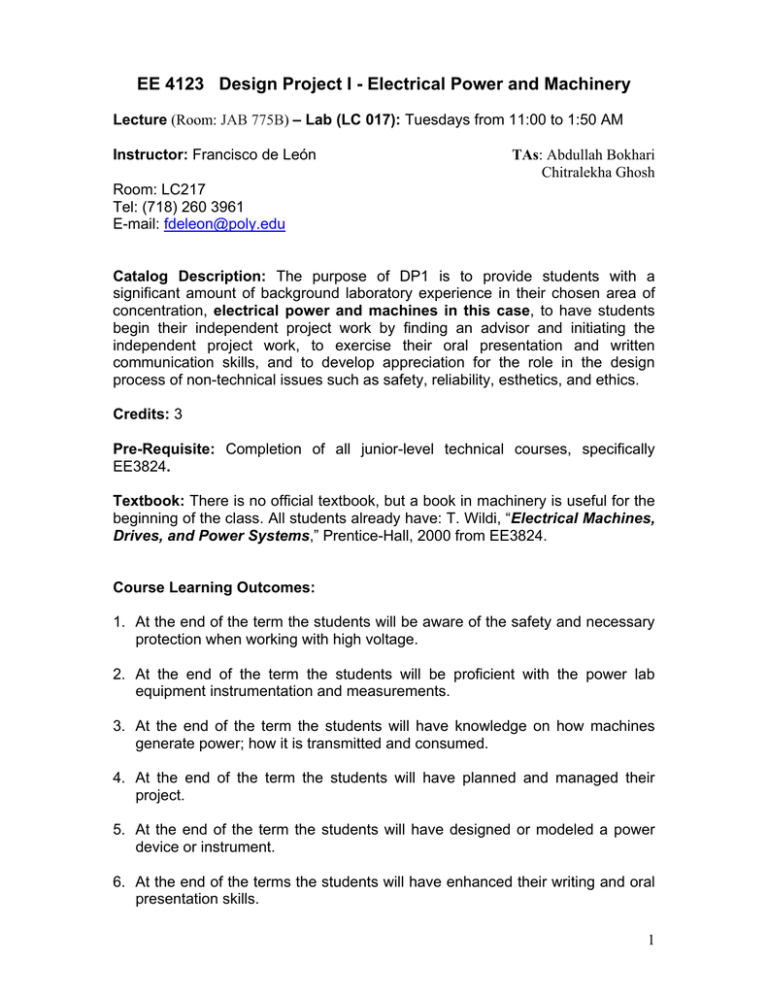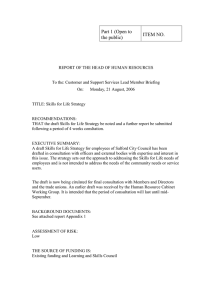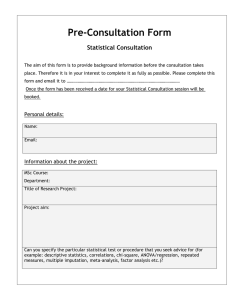EE 4123 Design Project I - Electrical Power and Machinery
advertisement

EE 4123 Design Project I - Electrical Power and Machinery Lecture (Room: JAB 775B) – Lab (LC 017): Tuesdays from 11:00 to 1:50 AM Instructor: Francisco de León TAs: Abdullah Bokhari Chitralekha Ghosh Room: LC217 Tel: (718) 260 3961 E-mail: fdeleon@poly.edu Catalog Description: The purpose of DP1 is to provide students with a significant amount of background laboratory experience in their chosen area of concentration, electrical power and machines in this case, to have students begin their independent project work by finding an advisor and initiating the independent project work, to exercise their oral presentation and written communication skills, and to develop appreciation for the role in the design process of non-technical issues such as safety, reliability, esthetics, and ethics. Credits: 3 Pre-Requisite: Completion of all junior-level technical courses, specifically EE3824. Textbook: There is no official textbook, but a book in machinery is useful for the beginning of the class. All students already have: T. Wildi, “Electrical Machines, Drives, and Power Systems,” Prentice-Hall, 2000 from EE3824. Course Learning Outcomes: 1. At the end of the term the students will be aware of the safety and necessary protection when working with high voltage. 2. At the end of the term the students will be proficient with the power lab equipment instrumentation and measurements. 3. At the end of the term the students will have knowledge on how machines generate power; how it is transmitted and consumed. 4. At the end of the term the students will have planned and managed their project. 5. At the end of the term the students will have designed or modeled a power device or instrument. 6. At the end of the terms the students will have enhanced their writing and oral presentation skills. 1 Topics Covered 1. Safety and precautions with power (high-voltage and rotating) equipment and instrumentation 2. Synchronous machines theory and practice 3. DC machines theory and practice 4. Project planning and management 5. Technical writing and oral presentations 6. Engineers: functions, responsibilities to society and ethics This course will rely heavily on the student’s ability to apply the knowledge of mathematics, science and engineering learned in earlier courses. The application of that knowledge will be geared toward formulating and solving engineering problems in the area of electric power and machinery, and will involve significant design activity. The course will involve the use of modern engineering tools and significant laboratory and experimental activity. Issues of professional and ethical responsibility in the context of the engineering design project will be discussed in the recitation part of the course. The course will involve written reports and oral presentations. Labs Lab 1: Three-phase Transformers Lab 2: Induction Machine (as Generator) Lab 3: Synchronous Machine Lab 4: DC Compound Motor Grading (form teams of 2 people): Mid-term Exam Lab (final) Exam Project Report Presentation 30% - Open book 30% - You can use only your lab report 30% - IEEE Format 10% - Individual grade In case of odd numbers, I would accept one team with three students or a student working alone (project expectations adjust accordingly). 2 Course Calendar Session No. DATE 1 September 4, 2012 2 3 4 5 September 11, 2012 September 18, 2012 September 25, 2012 October 2, 2012 5 6 October 2, 2012 October 9, 2012 7 8 9 10 11 12 13 14 October 16, 2012 October 23, 2012 October 30, 2012 November 6, 2012 November 13, 2012 November 20, 2012 November 27, 2012 December 4, 2012 December ??, 2012 (The day of the final exam) Class Schedule Course outline, motivation, form groups, scope and expectations of projects, report and labs Division of Sections for Lab (A and B) Safety in lab Electric Power Apparatus and Systems Lecture Sessions: Construction and theory of synchronous and induction machines. Construction of transformers, capacitors and inductors. Overview of the entire power system from generation to transmission to distribution and all the way to the power supplies of electronic equipment. Lab Lecture. Mid-Term Exam Lab 1 for Section A Project Consultation Section B No class. Fall Break Lab 1 for Section B Project Consultation Section A Lab 2 for Section A Project Consultation Section B Lab 2 for Section B Project Consultation Section A Lab 3 for Section A Project Consultation Section B Lab 3 for Section B Project Consultation Section A Lab 4 for Section B Project Consultation Section A Lab 4 for Section B Project Consultation Section A Reports Due and Final (Lab) Exam (No extensions) Steps for succeed in this class: (1) Together with an advisor select an electrical power engineering problem to solve. (2) Carefully design a project from beginning to end that will yield to a solution of the selected project. The idea is to become independent, but you can use your advisor to help. (3) Obtain the solution of the problem. (4) Write a report with your findings. (5) Effectively present your results and conclusions. 3




